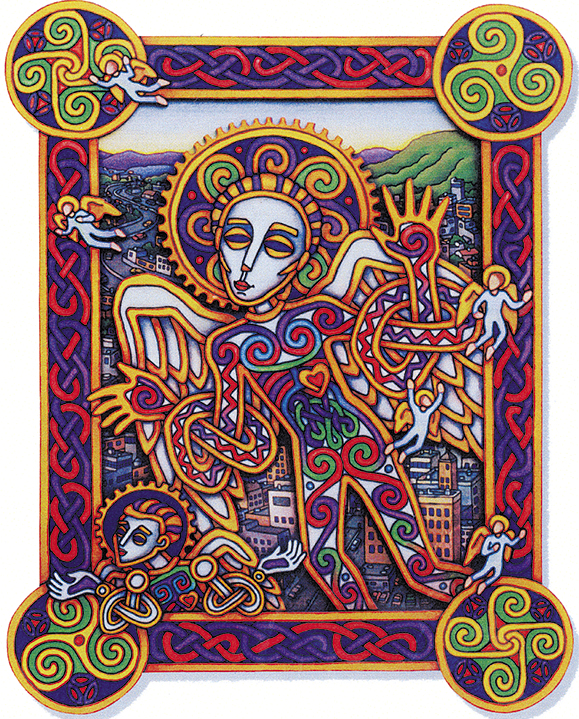I had never really been all that comfortable with my Irish heritage. I’ve always been scared that our American society views the Irish as a bunch of drinkers, big talkers who cannot be relied upon. It’s not accurate or even generally true, but it’s out there, lurking behind many a conversation. The image of the poor, pathetic, disheveled McCourt family of Angela’s Ashes haunts me. It’s an image that I try to stay as far away from as possible.
For the past five years, I’ve downplayed St. Patrick’s Day. I grew up in a house where my mother ensured that the children, and the neighbor’s children for that matter, were all wearing prominent, if not garish, items of green clothing every March 17. As a boy, I knew the words to “The Wild Colonial Boy” before those of any Beatles songs. I endured jests from other children who wanted to catch me to get my Lucky Charms. But it has gotten to the point where I no longer even wear green on St. Pat’s, let alone stop by a pub or sing the songs.
But this year was different. My brother in Philadelphia lost his wife earlier in the week, and the funeral, and the Irish wake, was scheduled for St. Patrick’s Day weekend. My brother’s wife was 46 when she died, and although her death from a particularly vicious form of cancer had been coming for months, it was still a shock to all around.
The night before the funeral, friends and family packed my brother’s small house in the suburbs. Traditional Irish music blasted from the stereo, and the dining room was laid out with a vast spread of food and drink. The crowd was noisy and laughing. From the street, I’m sure it looked more like a wedding reception or a graduation party than a gathering of mourners.
Halfway through the evening, the volume was lowered, and one after another, friends and family stepped forward to offer toasts to my sister-in-law. I had always known that she was loved by family members, but it wasn’t until I heard the toasts from friends, most delivered haltingly through tears, that I understood how much she had meant to her community. She had been a tireless volunteer in a group that counseled prisoners. She had been instrumental in revitalizing women’s groups. Though suffering from cancer, she was more concerned with others’ problems, and their feelings, than with her own. The nurses from the hospice told the crowd that they had never, in all their years of service, seen a person face the end with such dignity and grace. Terrie had done more for others in the last few years of her life than I have in all my 40 years.
Soon, though, the music was turned up again, furniture was shoved out of the way, and the Irish dancing began. Some of the steps might not have been too authentic, but the spirit was there, and everyone seemed to join in. The music got louder with each song, until the whole house shook with the beat as people clapped their hands and stomped their feet. Finally, the participants ploughed out into the night and stood on the front lawn, and howled together into the night sky, expressing their frustration at losing someone so young and so vibrant. Before the evening ended, an Irish tenor arrived and sang the crowd off into the night with a few sad songs.
The wake turned what began as a tragedy into a rowdy celebration of a life well lived. Someone dear to us was leaving for good, and we were throwing a party in her name. The only thing better would have been to have the guest of honor present in the room to see how much she had been appreciated. In a way, of course, she was.
An Irish wake may not bring back the dead. It can’t make up for all the things we never get around to saying to people when we still have them around. But it helps commemorate someone’s passing in a way that a viewing, or even a funeral, can’t. It gives people the chance to raise their voices together, to be loud enough to get the message through to someone, even someone who has passed on to the great beyond, that they were loved deeply.
I may not wear a big green plastic derby or sport a silly button, or even drink green beer next St. Patrick’s Day. I will probably not march in a parade. But I will wear just a little bit of green, and I will be thankful that I am Irish. ♦


Leave a Reply